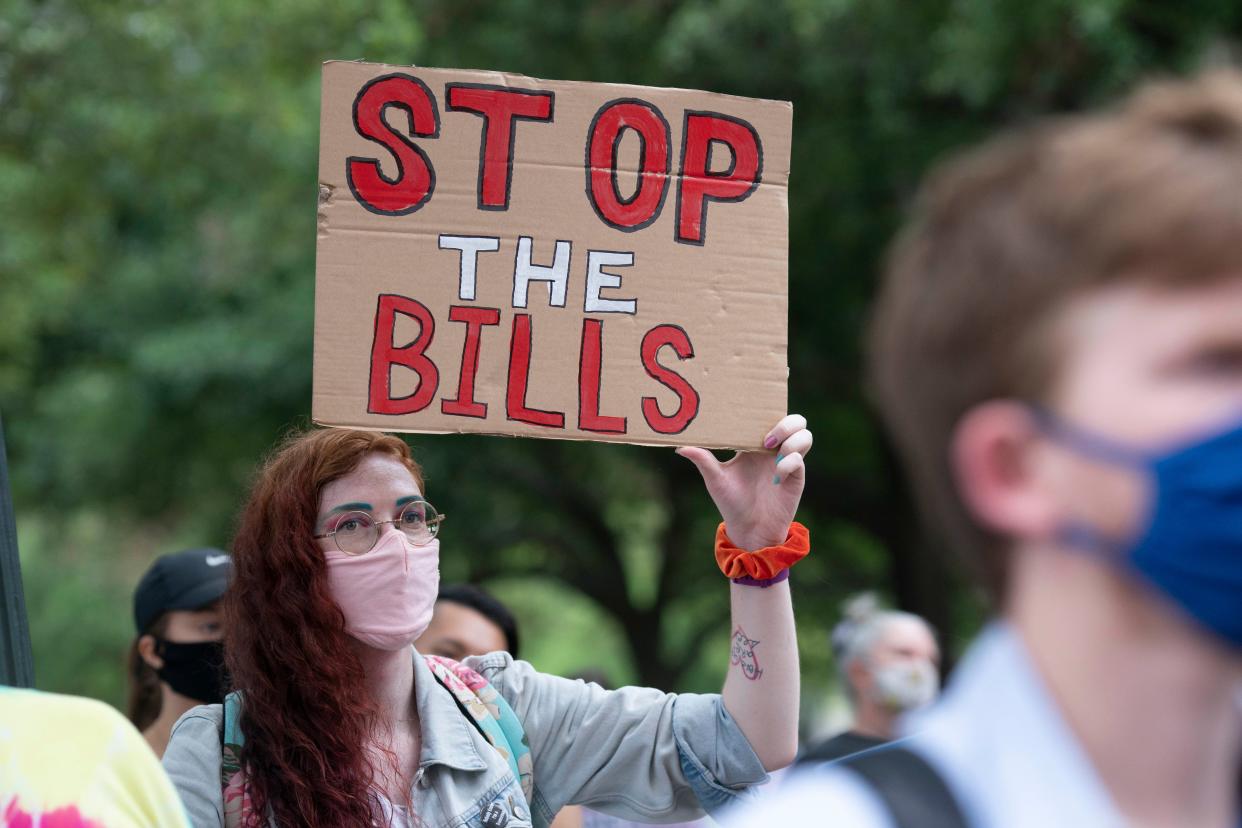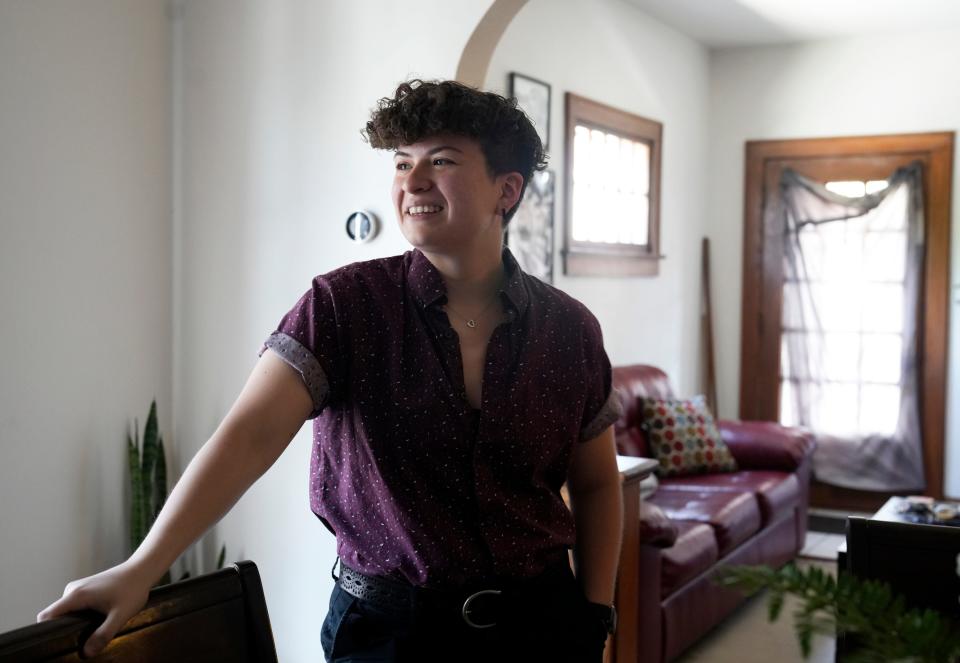Ohio leaders 'are twisting parents' fears into fodder for political gain' |Opinion

Brian Wenke is the executive director of the It Gets Better Project and was born and raised in Columbus.
I will never forget the look on my mother’s face when I told her I was gay. She froze and looked at me for what felt like an eternity before she said, “Well, of course, I support you, but I am afraid for you.”
It was a dark time for LGBTQ+ people. AIDS was still a death sentence, and "Don’t Ask Don’t Tell" and the Defense of Marriage Act were on the horizon. I will never forget that moment; she was afraid for me. I assured her I would be fine, but it took me years to actually believe it. It wasn’t until I left Ohio and found my community that I knew I wasn’t alone.
More: 'Mama Bears' creating space for moms who want to be what LGBTQ+ children need |Opinion
Life was simpler back then: no internet, no cellphones, and no obvious way to understand what it meant to be gay. My family has always been supportive and loving, but they had little guidance. Though my journey to self-acceptance wasn’t easy, I consider myself lucky.

Many LGBTQ+ people are not so fortunate. When compared to their cisgender and heterosexual peers, young LGBTQ+ people experience higher rates of bullying and harassment, physical violence, emotional abuse, peer and family rejection, and homelessness – all of which contribute to higher rates of mental illness, poor educational outcomes, substance abuse, and loneliness.
And yet, Ohio has decided it a priority to further alienate an already marginalized community with hateful anti-LGBTQ+ and “anti-racist” legislation (i.e., House Bills 61, 322, 327, 454, and 616; Senate Bill 132) under the guise of fairness for all.
More: Ohio House Republicans use back-door path to pass ban on transgender girls in female sports
Our elected officials are twisting parents' fears into fodder for political gain. Over the last two years, more than 390 anti-LGBTQ+ bills have been introduced across the country.
Book bans, restricting curriculum, denying trans athletes the opportunity to play, denying healthcare for trans youth, and “don’t say gay” bills are solutions in search of a problem. They are fabulous tools for stirring up controversy and directing attention away from the more salient issues our society is facing.

More: How to submit guest opinion columns to the Columbus Dispatch
The real threat to our world is a collective inability to empathize with people who are different.
It is a bias politicians have been leveraging for decades. Fear-mongering may get people to the polls, but it does nothing to create a better, more equitable world. It’s selfish and dangerous.
When you marginalize a group of people and bury their contributions to the world, you are giving others permission to do the same. As history has shown, when elected leaders target a community, their supporters do as well – and it isn’t always through clever rhetoric. It often comes in the form of increased violence.
More: They said 'best solution was for her to resign.' LGBTQ youth face discrimination. |opinion
Living in fear for your personal safety is traumatizing for all people, but acutely so for young people who are only beginning to understand who they are and what the future holds for them.

We should be clearing the path, not robbing younger generations of the ability to understand complex issues, to explore their identities freely, and to receive the support they need to thrive. House Bills 61, 322, 327, 454, and 616 and Senate Bill 132 do just that.
More: As 'Don't Say Gay' and similar bills take hold, LGBTQ youths feel they're 'getting crushed'
My personal journey brought me to the It Gets Better Project, an organization with a mission to uplift, empower, and connect LGBTQ+ youth around the globe.
I only wish it had existed when I was a teenager trying to navigate my emerging identity as a gay man. Its sole purpose is to give young LGBTQ+ people the runway they deserve to discover themselves and to connect with others just like them.
As proud as I am of the organization, it shouldn’t need to exist. LGBTQ+ youth deserve better. Everyone deserves better.
Brian Wenke is the executive director of the It Gets Better Project and was born and raised in Columbus.
This article originally appeared on The Columbus Dispatch: Opinion: Anti-LGBTQ+ bills lack empathy, put young people at risk

